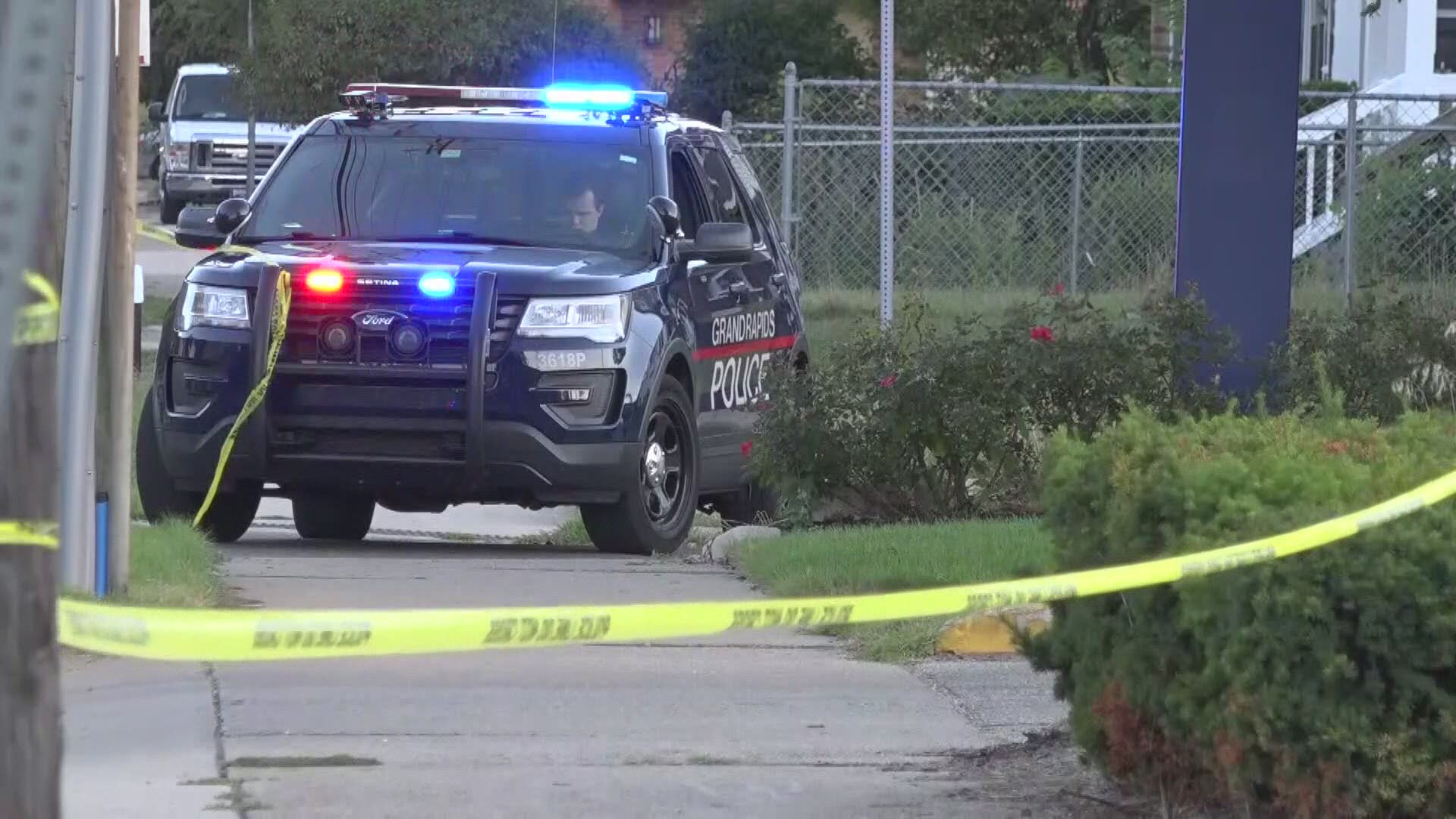- Download Get The Lead Out Program Grand Rapids Mich
- Download Get The Lead Out Program Grand Rapids Nc
If you would like to get started on your application package, you can download an application for rental property owners here, as well as the paperwork needed to qualify your tenants. Outside the City of Grand Rapids State of Michigan. Lead Safe Home Program (866) 691-5323. Download the State of Michigan Lead Hazard Reduction Program Application. Children should be tested for lead at 12 and 24 months, according to Michigan Department of Community Health screening guidelines. Parents outside of Grand Rapids who live in pre-1978 housing should also have their children tested at those ages. Since its inception, Get the Lead Out! Has made more than 1,350 homes in Grand Rapids lead-safe.
GRAND RAPIDS, Mich. – The City Commission held its bimonthly meetings Tuesday and heard updates on crime, on the City’s financial outlook and on seeking a partner to lead an evidence-based crime prevention program. It approved a revision to the park millage investment guidelines and adopted 2021 water and sewer rates for the City and its customer communities. It also set dates for public hearings regarding zoning ordinance text amendments to allow first-floor residential units in business districts, Brownfield redevelopment at 1601 Madison Ave. and construction of Perrigo’s North American headquarters at 400 Monroe Ave. It voted to approve two contracts for equity training programs. It also held two public hearings regarding the obsolete properties on Leonard Street. Here’s a recap:
Violent Crime Update & Evidence-Based Crime Prevention Request for Proposal Update
Chief Eric Payne of the Grand Rapids Police Department updated the Public Safety Committee on violent crime in the city and information on an evidence-based crime prevention request for proposal (RFP).
Chief Payne advised the committee that starting January 1, the Federal Bureau of Investigations will retire the Uniform Crime Report system and only publish crime data in the National Incident-Based Reporting System format.
Chief Payne notes that NIBRS will provide greater accuracy in collecting data on the types of crimes reported and more detailed information about crime. For example, NIBRS collects data on the relationship between offender and victim.
New reporting efforts are a part of the Police Department’s efforts toward greater transparency and reaching communities that are most affected by violent crimes.
While discussing the increase in violent crime this year, Chief Payne said, “This is not an issue that the police can solve alone, and this is not an issue we can solve without police. Only together can we get a city that is safe and feels safe.”
Brandon Davis, director of the Office of Oversight and Public Accountability, presented on its request for proposals (RFP) seeking a lead agency to implement a community-led, evidence-based violence reduction and intervention program. Davis noted that a successful agency will partner with the City by coordinating and implementing a program based on Cure Violence, Operation Cease Fire, Advance Peace, NOLA For Life models or a model with similar methods and outcomes. The RFP seeks qualified applicants that embrace an evidence-based, community-centered approach to gun violence reduction and intervention, have strong community ties and the ability to attract and manage diverse funding sources.

The City intends to contribute $75,000 annually for three years resulting in a total investment of $225,000. The targeted start date of the contract is March 1.
Proposal submissions are due by Jan. 15 on the City of Grand Rapids’ website HERE.
To view Chief Payne’s and Davis’ full presentation, CLICK HERE.
Revisions to parks millage guidelines
On November 5, 2019, residents of Grand Rapids overwhelmingly approved a ballot
proposal that will provide dedicated funding for parks, pools, operations and recreation through a permanent millage of 1.25 mills starting on July 1, 2021. Although the parks millage investment guidelines for the 2021 millage were adopted on Dec. 17, 2019, city leadership and the Parks and Recreation Advisory Board determined that the new guidelines would not meet current budget circumstances.
Download Get The Lead Out Program Grand Rapids Mich
Director of parks and recreation, David Marquardt, presented on the revisions made to the 2019 parks millage investment guidelines. The revisions clarify language prioritizing other sources of funding for land acquisitions while maintaining the option to use millage as a grant match. The revisions also match the 2013 park millage investment guidelines regarding the method of calculating the annual maintenance of effort investment.
The City Commission approved the revision to the parks millage investment guidelines to go into effect beginning July 1, 2021.
To view Marquardt’s full presentation, CLICK HERE.
Zoning amendments to allow first-floor residential units

The commission heard a presentation on zoning text amendments to allow first-floor residential units that will support the development of additional residential and commercial properties market from Planning Director Kristin Turkelson. The amendments come as the city experiences a significant shortage in affordable housing, housing supply and COVID-related impacts which have further strained an already challenging retail market.
Turkelson said the text amendments are proposed to provide greater flexibility in ground-floor use requirements within traditional business area (TBA) and commercial zone districts, allowing for ground-floor residential units in business districts. The amendments will also eliminate the bonus height structure applicable to the TBA zone district without increasing the overall allowed building height of four-stories. Due to community housing needs, current market conditions, impacts of code related impacts creating greater flexibility in ground-floor use requirements will provide building owners the opportunity to utilize vacant or underutilized ground floor space into residential space.
“The number of projects that have been stalled or we are losing as a result of [the zoning ordinance] is significant. I simply don’t think we can wait with what’s happened in the last 12 months,” she said.
The commission set a Jan. 12 public hearing to discuss zoning ordinance text amendments allowing ground-floor residential and office uses in TBA and C zone districts and eliminate the bonus height structure applicable to the TBA zone district. It will consider the ordinance Jan. 26. The public hearing will take place at 7 p.m. during the City Commission meeting, which is broadcasted live on Comcast government access Channel 26 and streamed live on the City of Grand Rapids’ YouTube and Facebook pages.

To view Turkelson’s full presentation, CLICK HERE.
Water and sewer rate changes
The City Commission approved a resolution to adjust City water and sewer rates in accordance with the 2020 water/sewer rate review. The rate changes will affect Grand Rapids and its partner communities – the cities of East Grand Rapids, Kentwood and Walker, the county of Ottawa, and the townships of Ada, Cascade, Grand Rapids, Gaines, Tallmadge, Caledonia, and Wright. Grand Rapids residents and those living in partner communities had the opportunity to provide comment through Dec. 6, which were considered during the Fiscal Year 2022 budget planning process.
During its Nov. 10 meeting, the City Commission heard an annual overview of the 2020 water and sewer rate study for rates effective Jan. 1. The annual rate study indicated an overall system average rate change of 0.62 percent for water and 7.92 percent for sewer. This means the average Grand Rapids resident will pay $0.38 less for water and $6.70 more for sewer per quarter, or an annual increase of $25.28 total for water and sewer combined.
Homelessness relief
As homelessness persists in the city, the commission approved a budget amendment that highlights the City’s new investments supporting homelessness efforts. Those efforts include:
Download Get The Lead Out Program Grand Rapids Nc

- Supporting additional emergency shelter for five months for persons experiencing homelessness through a partnership with Mel Trotter Ministries to lease 250 Ionia SW. This will enable Mel Trotter to have inclusive sheltering capacity for individuals and families with appropriate physical distancing and will allow Grand Rapids to function within the CDC guidelines when addressing homelessness during COVID – COST: $165,000
- Extending the Homeless Outreach Team (HOT) for six months and expand outreach and services to 8 p.m. – COST: $798,000 + 138,000 for expansion
- Retaining a dedicated eligibility specialist with the Michigan Department of Health and Human Services (MDHHS) for the Eviction Prevention Program in the 61st District Court – COST: $66,700
For more information on the City’s actions to promote and support solutions to homelessness, CLICK HERE.
Financial and COVID-19 recovery update
Molly Clarin, chief financial officer, and Alison Waske Sutter, sustainability and performance management officer, briefed the Fiscal Committee on the financial outlook for the City of Grand Rapids for fiscal year 2021. Due to uncertainties related to the COVID-19 pandemic, data and projections for 2021 remain fluid, Clarin said, “the health crisis continues to drive economic conditions presenting variable and challenging realities upon which to build a forecast.”
She explained the City will likely experience significant losses in income tax due to more non-resident workforce working from home for much of the year. Once the 2020 tax returns are filed beginning in January, the City will have a better understanding of how many non-residents choose to allocate their income out of the City as a result of working from home. Additionally, the City cannot collect taxes on received unemployment benefits. When combining the inability to tax unemployment benefits with the loss of non-resident income taxes, the City could stand to lose approximately $10 million in FY2021 alone. On a more positive note, Clarin shared that unemployment is now at 5.2%, an improvement from 8.7% last month.
She and Sutter then detailed a series of budget amendments (later approved by the entire City Commission) that were made in response to COVID-19 recovery and were aligned with the priorities set y City Commission during its Oct. 30 workshop. These investments support COVID-19 response and recovery efforts and help achieve the desired outcomes established in the City's Strategic Plan.
The six consensus priority topics that City Commission desired staff tackle for the remainder of FY2021 include:
- Housing and Homelessness
- COVID Relief / Economic Recovery Including Health Impacts
- Third Ward Equity or Neighborhoods of Focus Fund
- Public Safety Reform
- Crime Prevention / Violence Reduction
- Fiscal Sustainability and Discipline
To download a memo that outlines these FY 2021 additional investments and work planned that align with the six identified priorities, please CLICK HERE.
Public hearings for Perrigo’s downtown Grand Rapids headquarters
The commission set Tuesday, Jan. 12 public hearings to consider an Industrial Development District (IDD), a twelve-year Industrial Facilities Exemption Certificate and a twelve-year New Personal Property Exemption Certificate for Perrigo Company at 400 Monroe Ave. NW.
On Oct. 27, Perrigo announced that it would be relocating its North American headquarters to the Michigan State University Grand Rapids Innovation Park in a building to be constructed and anticipated to be addressed as 430 Monroe Ave. NW. Perrigo proposes the construction of its North American headquarters on the eighth, ninth and tenth floors of the building. Construction is expected to start in February with final completion targeted for May 2022.
The public hearing will take place at 7 p.m. during the City Commission meeting, which is broadcasted live on Comcast government access Channel 26 and streamed live on the City of Grand Rapids’ YouTube and Facebook pages.
City and community equity training programs
In its continued efforts laid out in the strategic plan to embed equity and inclusion in City operations, the commission approved a $35,025 contract with the National Equity Project (NEP) for curriculum development, facilitation and evaluation of the City’s Equity Champions cohort. The Equity Champions cohort will include mid-level staff from various departments with the intention to help embed equity into every department’s budgets, operations, practices and culture.
The commission also approved a contract up to $40,000 with Harriet Speaks LLC to create and facilitate curriculum for a virtual community discussion series designed to build capacity and awareness on topics related to structural racism and allyship. It also includes curriculum design, facilitation and project management for a cohort experience of 35 Grand Rapids residents wanting to grow in their equity journey.
Brownfield Plan Amendment at 1601 Madison Ave.
The commission set a Jan. 12 public hearing to consider a Brownfield Plan Amendment for a redevelopment project at 1601 Madison Ave. SE. Phase one of the proposed redevelopment project will demolish the existing industrial building to construct a new 60,000 square-foot office/industrial building and surface parking lot. The new building will be leased to a single tenant, a device/data management company, which will relocate its headquarters to Grand Rapids. The investment will create 95 jobs with wages averaging $21.57 per hour. Total estimated investment in phase one the project is $12.5 million, with hard construction costs of approximately $8.5 million. The project is permitted in the zone district and aligns with the Southtown Business Area Specific Plan.
The public hearing will take place at 7 p.m. during the City Commission meeting, which is broadcasted live on Comcast government access Channel 26 and streamed live on the City of Grand Rapids’ YouTube and Facebook pages.
Public hearings for 730 and 736 Leonard St.
The City Commission held two public hearings to consider the establishment of an Obsolete Property Rehabilitation District and an application for a twelve-year Obsolete Property Rehabilitation Exemption Certificate at 730 and 736 Leonard St. NW. The building at 730 Leonard St. was originally constructed in 1927 and has been vacant except for one retail and one storage tenant. Renovation plans, which extend over the 736 Leonard St. property line, include 18 upper-level apartments, first-floor office and retail space and basement-level storage.
For a complete look at Tuesday’s City Commission meeting agendas, CLICK HERE.
# # #
This press release was produced by the City of Grand Rapids. The views expressed are the author's own.
